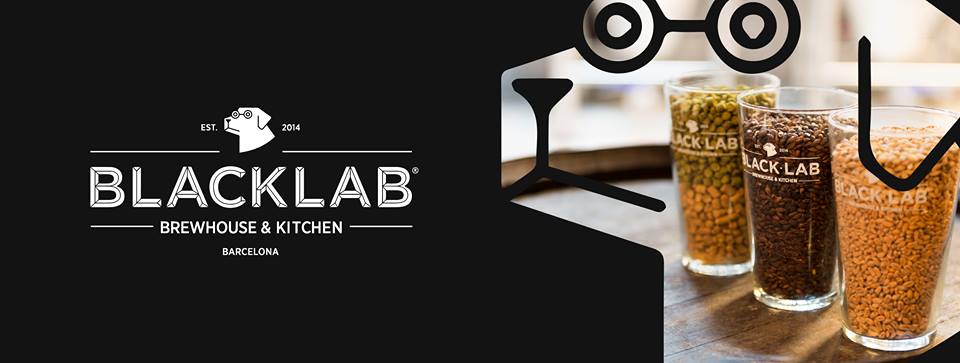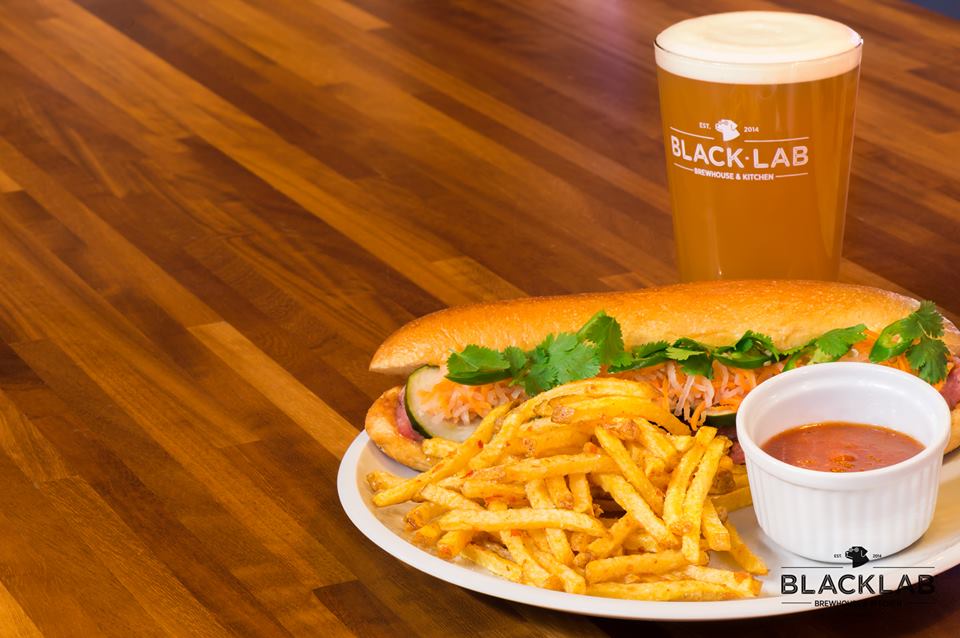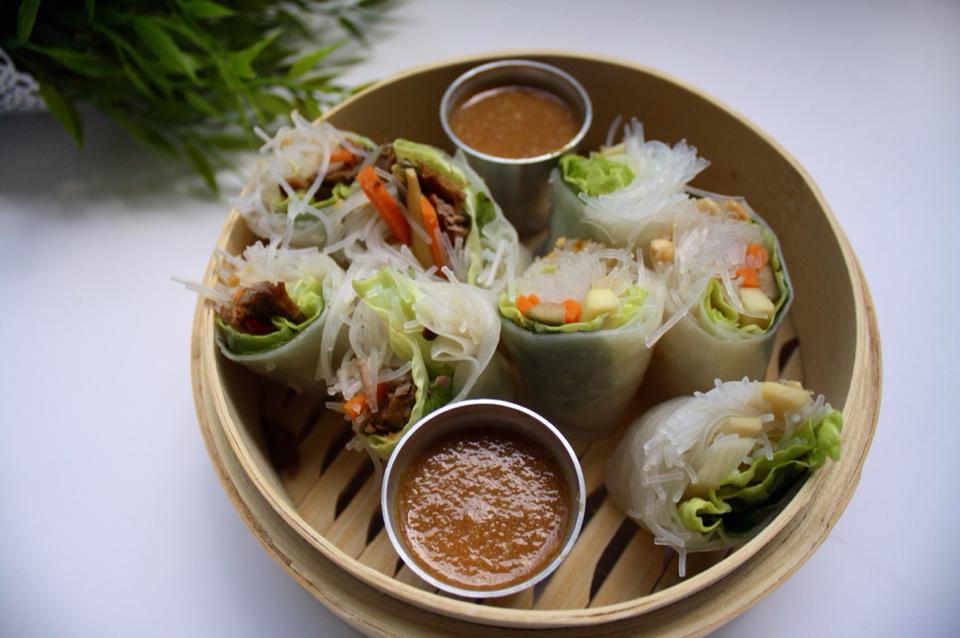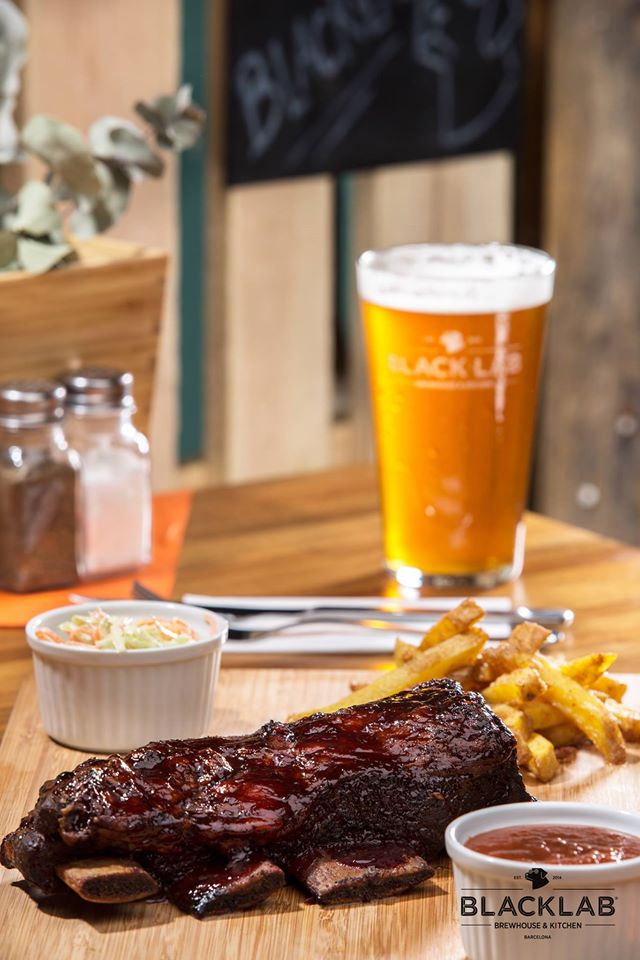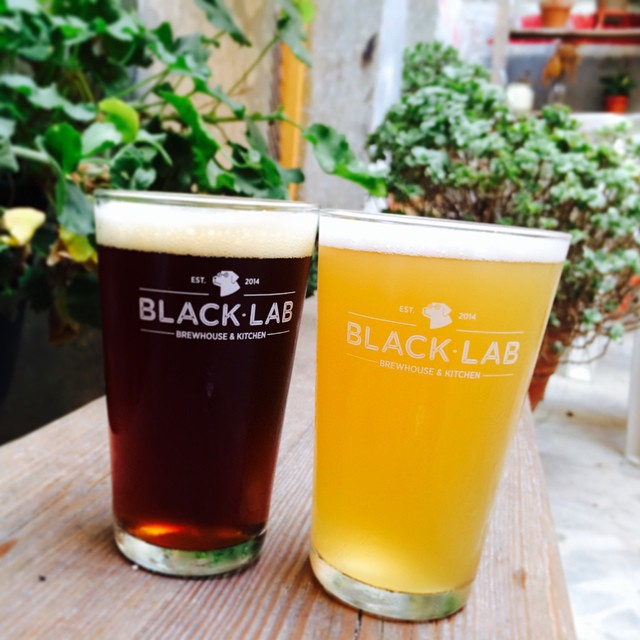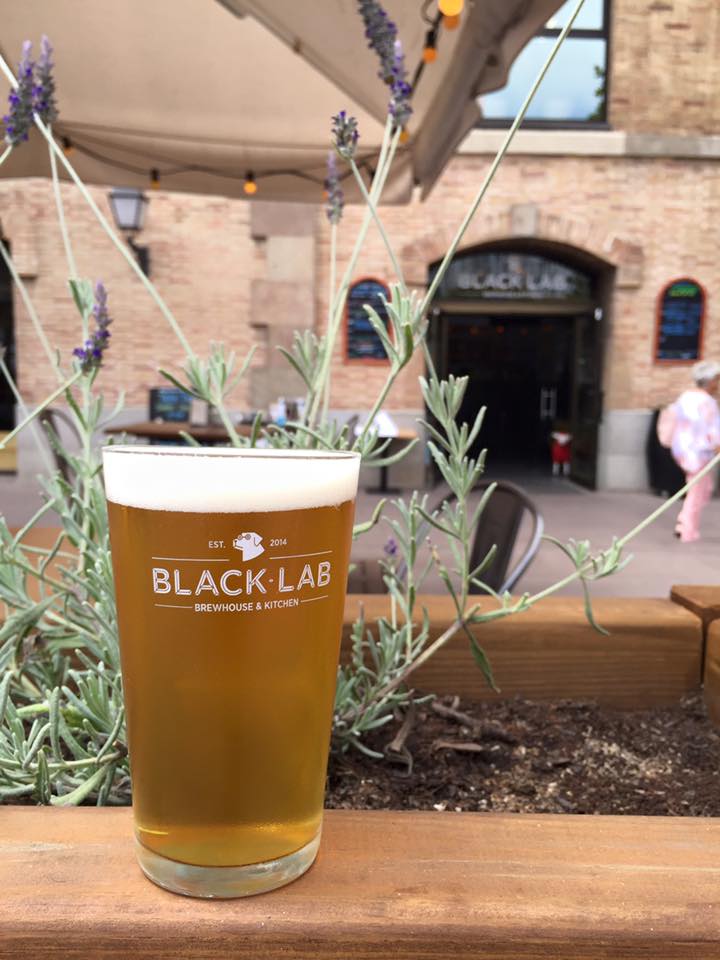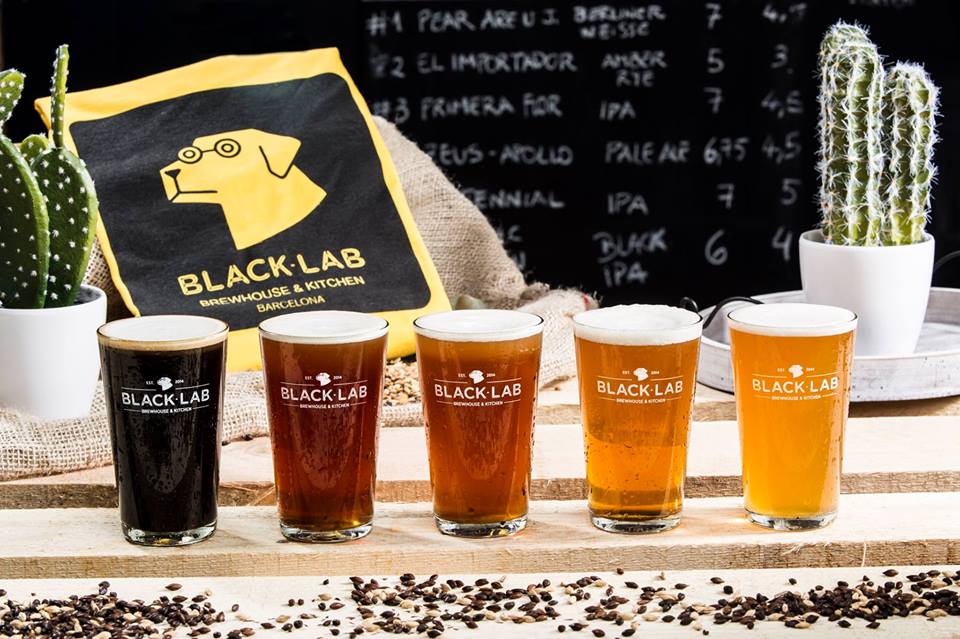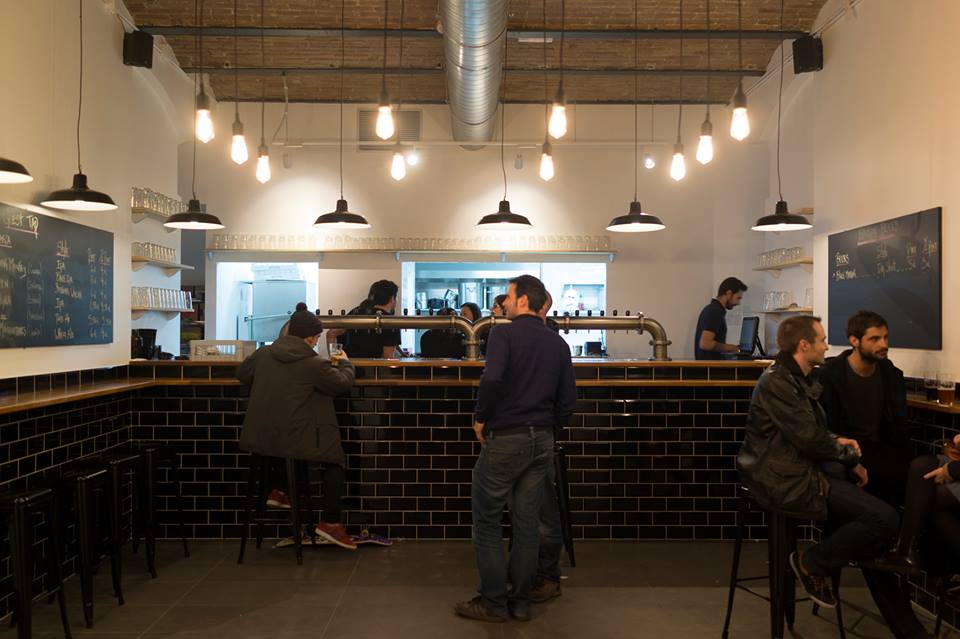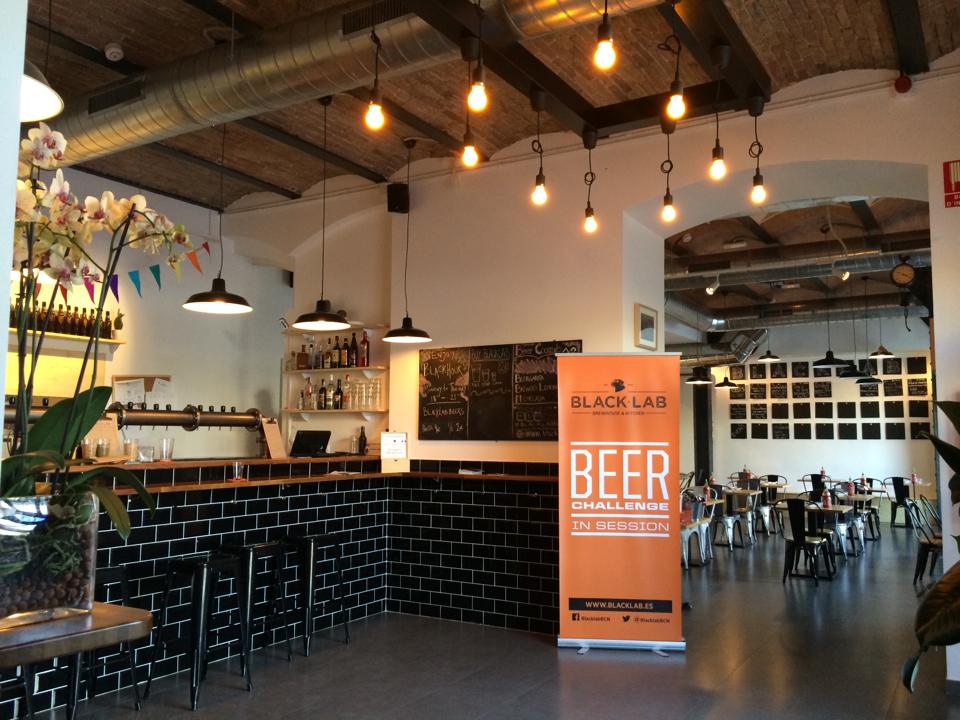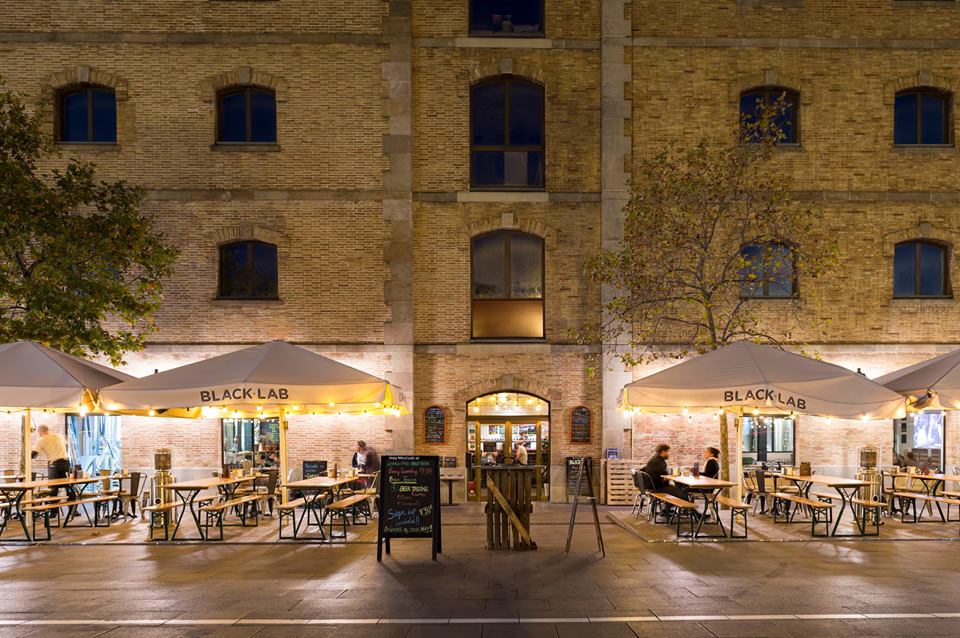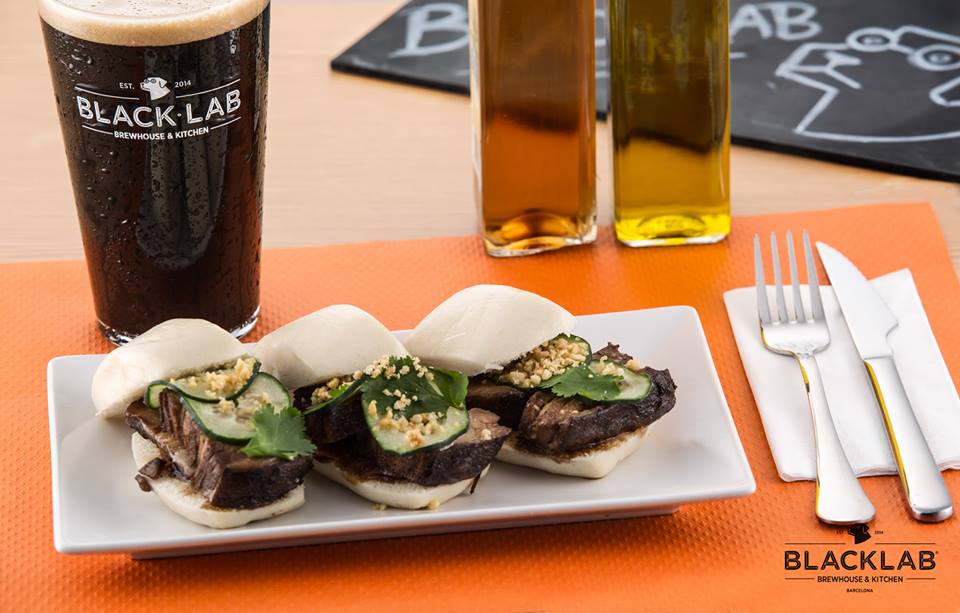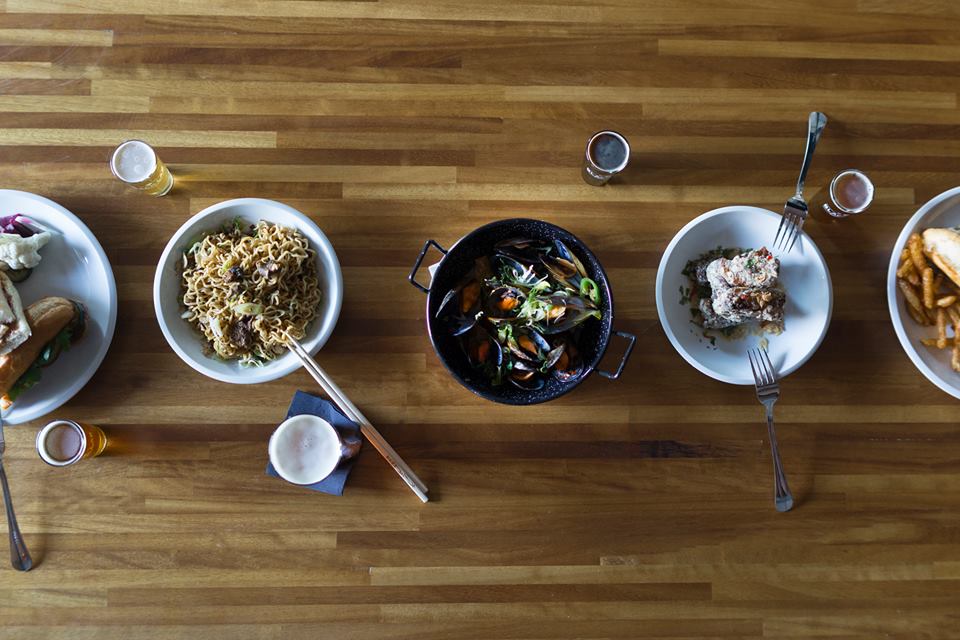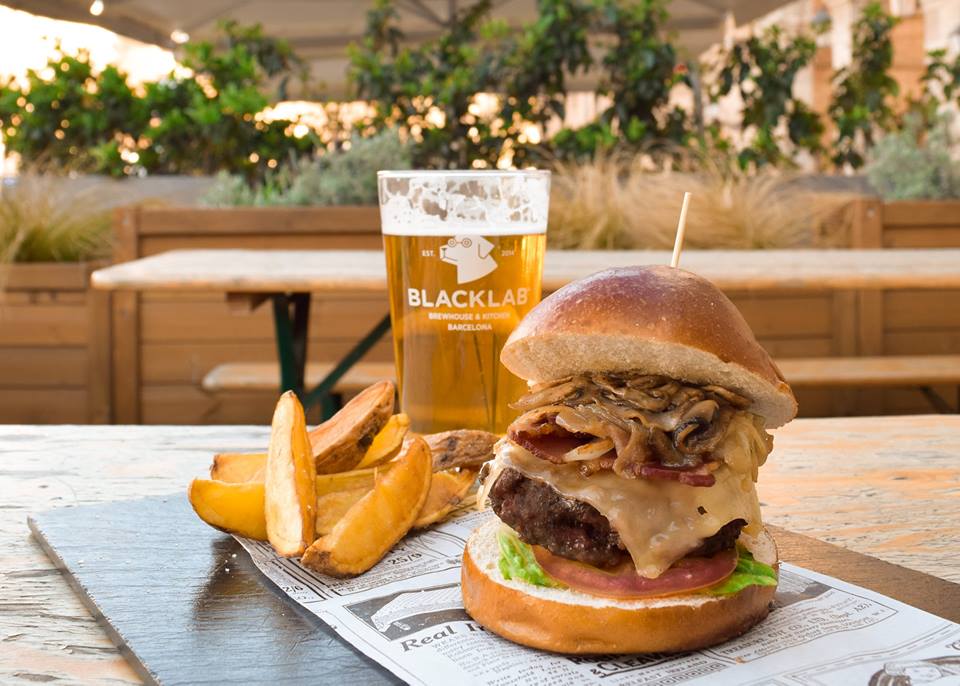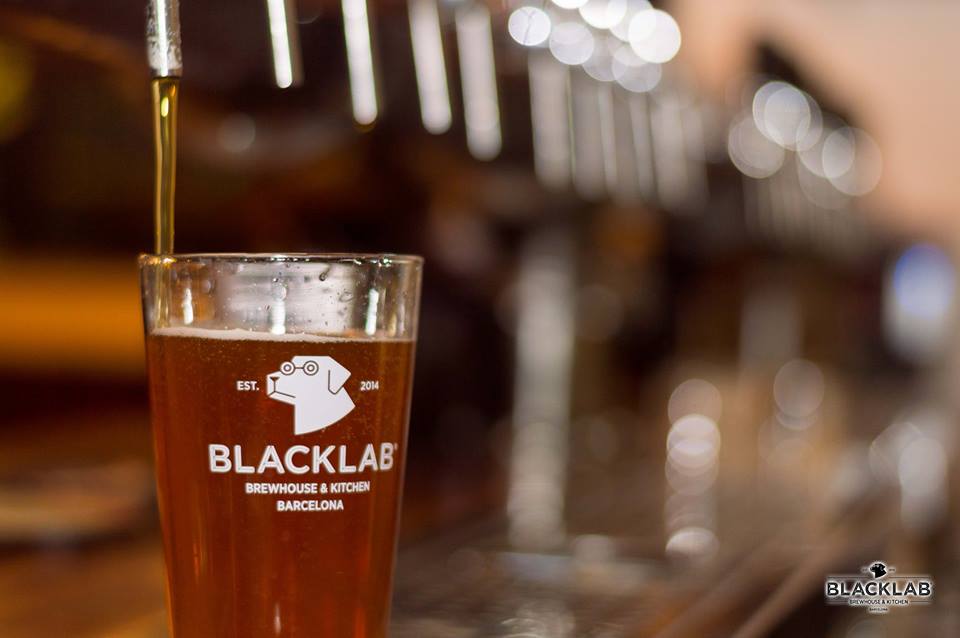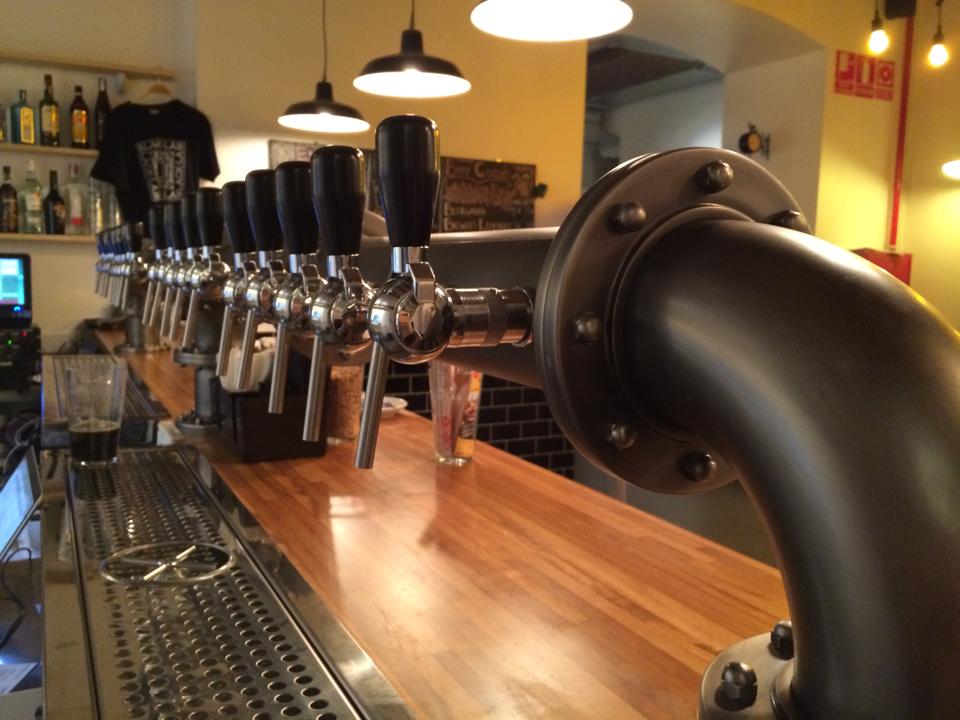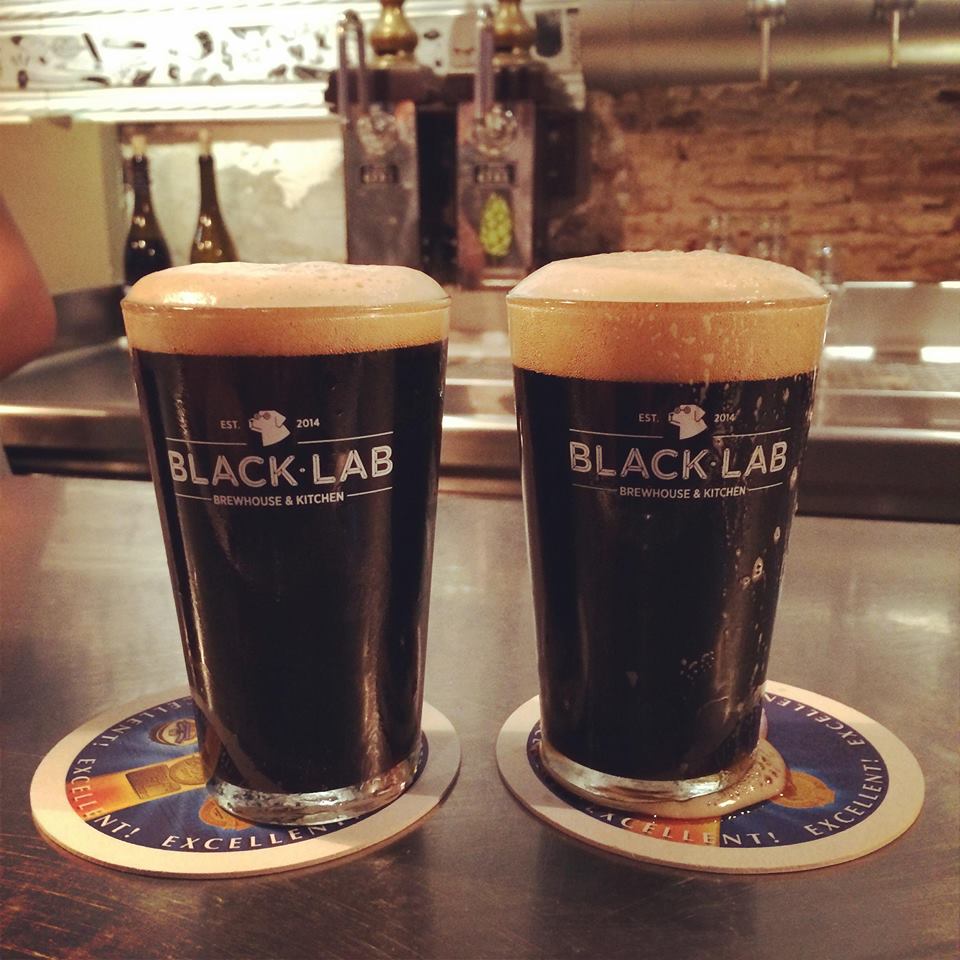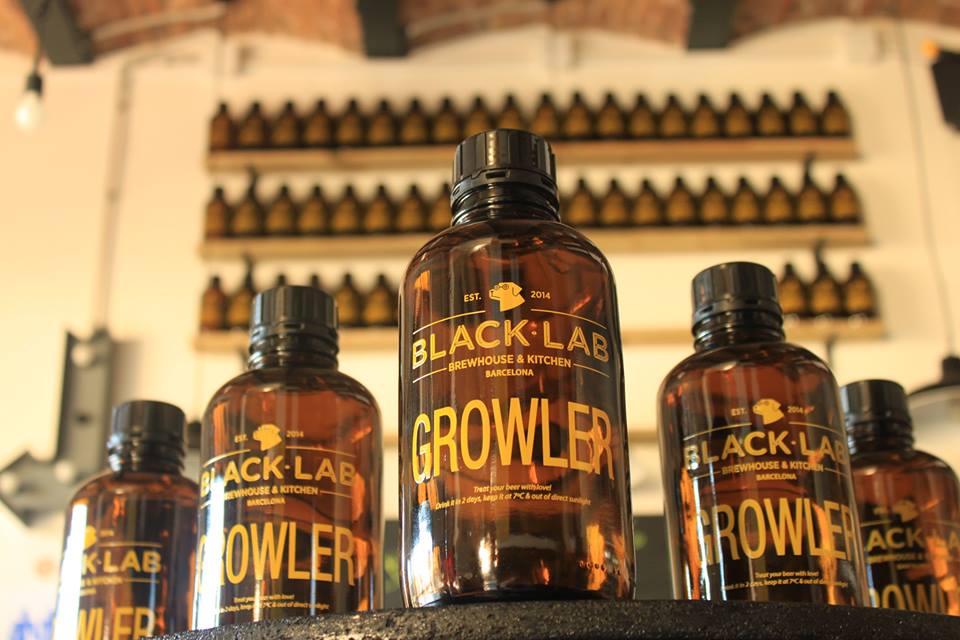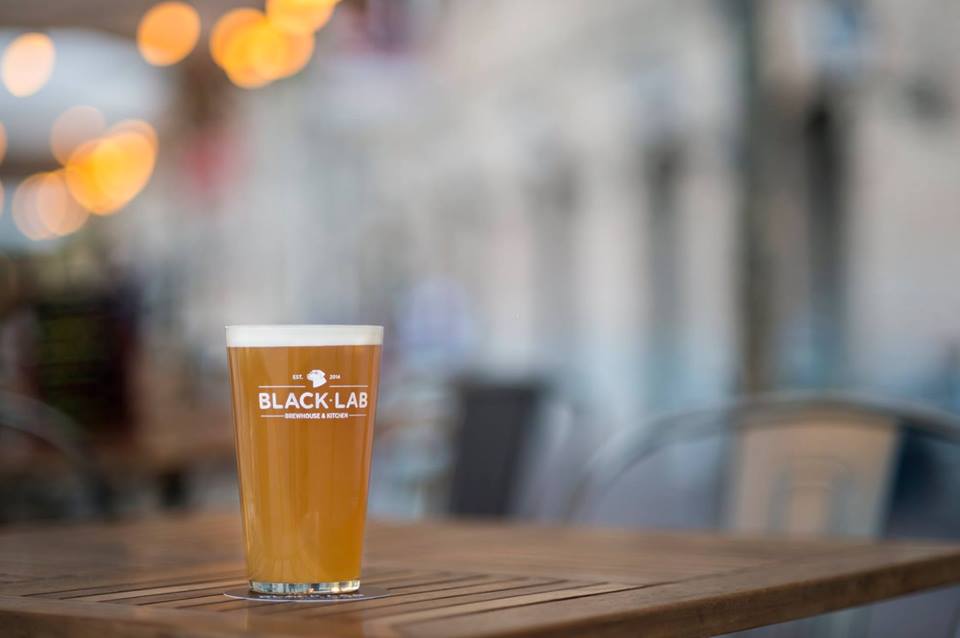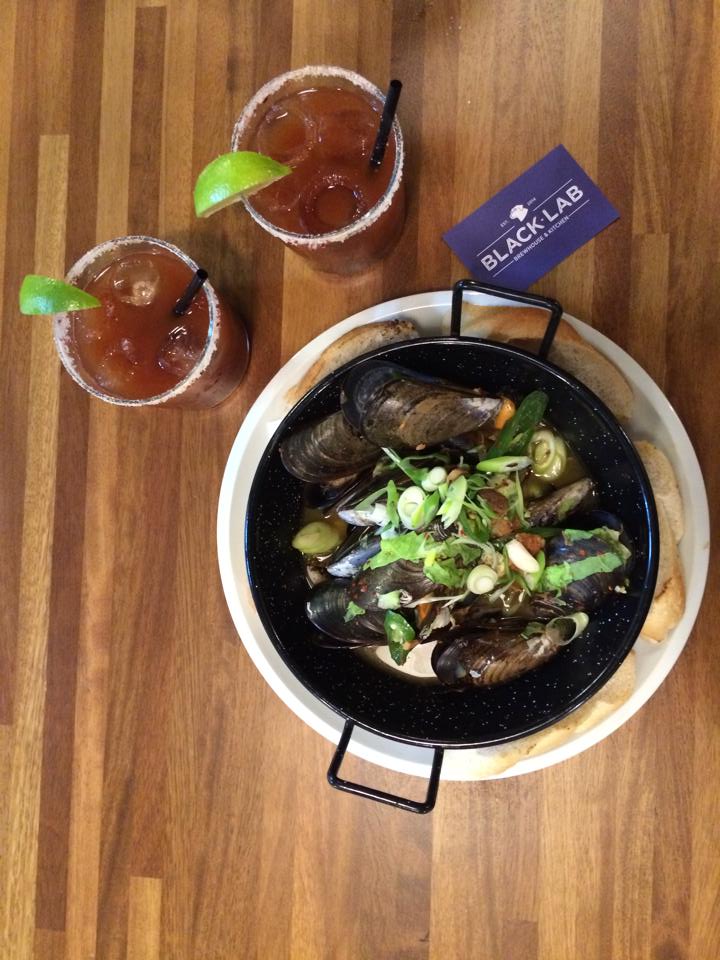
Who are you and your current job?
My name is Matt Boder, and I am the brewer and one of the owners at BlackLab, a brewpub in Barcelona.

What was the inspiration behind your brewery?
I had been homebrewing for about 10 years before we opened our doors here at BlackLab. I am from the USA, so I had grown up tasting all the great new beer styles coming out in the 90’s and 00’s, and decided to start to brew as a hobby and a way to hang out with friends and meet new people. This soon turned into something that I was very interested in learning more about, so I started to become more serious in my techniques and research etc… Over the years I learned a great deal about the technical process of making beer and using techniques and ingredients to achieve an interesting and great tasting brew, and in fact, some of the recipes that I make here at BlackLab have direct connections back to the homebrew days. Claudia, our best selling IPA, originally began as a homebrew recipe over 5 years ago!

BlackLab is a result of the passions of both my wife Jing, and I. Jing is Chinese/Spanish and has always wanted to run her own business, and has had family involved in the hospitality industry in Spain. I bring the passion for beer to the equation. We saw many years ago that Barcelona might be a place where we could set up roots, and bring our little idea of a brewpub to fruition, so we decided to commit to the city and it’s beer scene and people. In December 2014, after about a year and a half of planning, we opened BlackLab. The name BlackLab comes from Black Labrador (we have one, and her name is Lola) and also because of the connection to the black laboratory. We embrace the double meaning in our logo with our labrador wearing glasses to become a dog scientist!

At BlackLab we serve American style food, with an Asian twist, and our beer has a decidedly American feel to it as well, but we also do quite a few European styles. Honest, cosmopolitan and character are three things we like to associate with BlackLab and hope that our fans do as well.

Can you give us a tour of your beer scene?
The beer scene in Barcelona is extremely vibrant, but this is something that really started to happen in the last 5 years, and we still have a LONG way to go. Some of the oldest breweries here have been around for about 10 years I think, but it really wasn’t until the first BBF 6 years ago that you started to see real changes in the beer scene. The first BBF was a by-product of increasing interest in craft beer and it drew enough of a crowd to inspire a lot of the future brewers here and assure it’s success for the future. Since then, craft bars and brewpubs and breweries has increased staggeringly fast. For example, since we opened in Dec 2014, at least 6 other brewpubs have opened and many more bars. This is all quite good for the local beer scene because the majority of the Spanish market still needs to discover craft beer. There are many great beer festivals here that help to introduce craft beer to many new customers every year. Things are changing incredibly fast here and it is fun to be a part of it.

As the fast growth continues we also need to keep an eye on quality. The weather in Barcelona is not great for beer storage, and after the initial quality control during the brewing process, having cold storage for the distributors and bars is for me the most important thing. We are lucky here at BlackLab because we don’t distribute much beer, so I have total control over the conditions that it is kept in, but a beer that is not made or packaged well will not keep well on a shelf and will not taste good for very long in the hot BCN summers. Breweries need to understand that in the long run, it is more damaging to serve a bad product than to dump a beer because it does not meet quality and taste standards. Not only does the brewery receive a bad reputation, but customers can start to be confused about what flavors should be in a particular beer and what flavors are off flavors.

We are also starting so see, even at this very early phase of the Spanish beer market, the big players in the industry buying smaller craft breweries, or starting to think about making some more modern beer themselves. ABInBev (the multinational beer behemoth) recently bought a relatively unknown brewery in Madrid called La Virgen.
Last year the Mahou/San Miguel group (a Spanish industrial beer conglomerate) bought 30% of the famous American brewery Founders and bought 40% of a local contract brewer called Nomada. Also, large Spanish breweries are now investigating ways to produce popular modern beer styles on a large scale. Now, there is nothing wrong with selling your successful business, but the small producers have to be very careful not to get into a price or marketing war with these pseudo craft breweries or industrial breweries with craft departments because we will always lose. They have infinitely more money to outspend us and undercut our prices. Give the average bar owner a choice between two great IPAs, and they would obviously choose the cheaper one, and I don’t blame them. We need to represent our product as something more special than the cheaper product of the same quality, that is worth added value to the consumer. Something that will always fresher because of smaller distribution chains, and more control for the breweries. A product that is more important than the marketing. Something that is locally owned and locally produced, but local doesn’t mean sacrificing quality. The quality of our beer needs to be the same or better than what people expect from the big guys. We only get one shot to impress a future craft beer fan.

What advice would you give to someone who wants to start a brewery?
Complex question, but I can give some advice from what I have learned so far.
Plan very, very, very, very well. Not only the brewing equipment and the location and bottles or cans and styles of beer, but marketing and concept is very important. Unfortunately, it seems that nowadays, great marketing can easily sell not so great beer. So, be sure that the quality of the beer is perfect, and also make sure your concept and marketing strategy is perfect.

A proper business plan is essential, and something that is realistic. Don’t imagine that you are going to be running at full capacity (or even 50% capacity) right when you open. In most cases, the sales, and the business will start very very slow, so you need to be sure you have enough cash on hand to cover this slow time. Be prepared for setbacks. Unless you are an expert in project management and budgeting, everything will take longer and cost more than you anticipated.
Buy decent equipment. Great beer can be made on almost any system, but it is a lot easier to make great beer on better equipment. You don’t have to buy the best, but don’t buy the worst either.

Hire a brewer if you don’t have more than 5 years experience with the beer making process (at any scale). As the markets mature, the quality of your beer can make or break you right away. There is no time to develop your recipes and learn about the process over your first year. You better be making kick ass beer right away. If you have a homebrewing background and want to be the brewer, you need experience. Experience on different sized homebrew systems, you need to have brewed hundreds of batches of beer and understand the process inside and out. You also should go and work for free at a brewery to see if you actually like the day to day operations. I have met people who were super enthusiastic about working in a brewery, until they saw most of the actual work was cleaning and testing and planning, not just developing recipes and drinking beer with clients.

Never think you know everything and never stop learning.
Last but not least, you need to love beer. You will be talking about it, thinking about it, and surrounded by it every day, so you better enjoy it!

